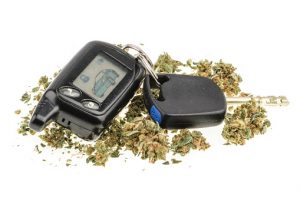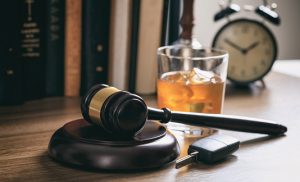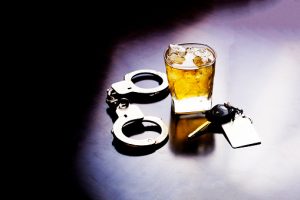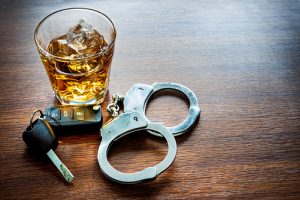What is the Financial Impact of DWI Conviction in Texas?
Much higher than you might expect, a Texas DWI defense lawyer explains
 Being arrested, charged and convicted of drunk driving in Texas can completely change your life. You might lose your driver’s license for several weeks or months. You might have to install an ignition interlock device. You might even have to serve jail time.
Being arrested, charged and convicted of drunk driving in Texas can completely change your life. You might lose your driver’s license for several weeks or months. You might have to install an ignition interlock device. You might even have to serve jail time.
And then there’s the cost. Some people only take into account any fines they have to pay for their driving while intoxicated (DWI) conviction in Texas. But that’s often only a fraction of the true financial impact of many DWI convictions.
“Many people are surprised by how expensive a drunk driving conviction in Texas can be,” Texas DWI lawyer Joseph LaBella said. “That’s why we always encourage people to contact us as soon as possible if they have been charged with drunk driving.”
Estimated cost of DWI conviction
The financial impact of every DWI conviction is different. That’s because every case is unique. But the bottom line is most convictions cost people thousands of dollars over the course of their lifetime.
In 2006, the Texas Department of Transportation conducted a survey estimating the total cost of a DWI arrest and conviction for a first-time offender, according to an article posted on Bankrate.com. The article estimated that a first-time conviction with no accident can cost anywhere from $9,000 to $24,000. The same article also states that the Texas Safety Network estimates that a DWI can cost almost $8,000.
“I never would have thought I would have gotten a DUI and I had no idea how much it cost. I’m your quintessential good girl, too. I didn’t have that much to drink either, just enough to put me over the limit,” a woman named Kate said in the Bankrate.com article. “It’s a real financial burden.”
Itemized breakdown of a DWI conviction
So why does a DWI conviction cost so much? Estimates include some of the following items:
- Fines (up to $2,000 for 1st conviction)
- Court costs
- Bail
- Car towing
- Car impounding
- Cost of incarceration (up to 3 months in jail for 1st conviction)
- DWI school
- Driver’s license reinstatement fee ($3,000 in many cases)
- Loss of job (in certain circumstances)
- Loss of income (in certain circumstances)
- Purchase or rental of car ignition interlock device
- Installation of car ignition interlock device
- Monthly fees for car ignition interlock device
- Increased auto insurance premiums
- Attorneys’ fees
In addition, it’s important to note that such estimates are based on the following circumstances:
- It’s your 1st DWI arrest.
- You did not cause a car accident.
- You did not injure anyone.
If you caused an accident and someone else was hurt, the financial impact of your DWI car accident could be significantly higher, especially if someone was killed in an auto accident you allegedly caused. If you accidently killed someone in a DWI accident, you could be charged with intoxication manslaughter. The penalty is up to 20 years in prison and a maximum fine of $10,000.
Why hiring an attorney matters
Faced with such serious consequences, it’s important for people arrested and charged with DWI to contact a lawyer right away. That’s why we always urge people to call us 24 hours a day, 7 days a week. You have too much to lose. Don’t wait to take strong legal action. Get the legal advice you need now to make things right. Contact us now.
Our firm, Joseph LaBella & Associates, handles driving while intoxicated (DWI) cases throughout Texas. If you or loved one has been charged with DWI, contact our law firm and schedule an appointment today. Call 1-800-395-5951 right now.





 Recently,
Recently,  Over the Thanksgiving holiday in Texas, avoiding
Over the Thanksgiving holiday in Texas, avoiding  Recently, the Supreme Court ruled on a case called
Recently, the Supreme Court ruled on a case called  In Houston, many students have now arrived for the semester to attend school at Houston Community College, Lone Star College, Houston Baptist University, Prairie View A & M, Rice University, Sam Houston State University, and other local universities. Many of these students will kick off their semester by having a few drinks with friends, and may will continue to drink throughout the semester.
In Houston, many students have now arrived for the semester to attend school at Houston Community College, Lone Star College, Houston Baptist University, Prairie View A & M, Rice University, Sam Houston State University, and other local universities. Many of these students will kick off their semester by having a few drinks with friends, and may will continue to drink throughout the semester.  Football season has officially arrived, which means that it is now the prime time of the year for people to watch the game and have a few drinks. Unfortunately, law enforcement officials know that football season is a time when a lot of people like to sip some beers while watching the game with friends. Police step up enforcement of drunk and drugged driving during this time of year, which leads to more people being arrested for impaired driving.
Football season has officially arrived, which means that it is now the prime time of the year for people to watch the game and have a few drinks. Unfortunately, law enforcement officials know that football season is a time when a lot of people like to sip some beers while watching the game with friends. Police step up enforcement of drunk and drugged driving during this time of year, which leads to more people being arrested for impaired driving. Many people arrested for a
Many people arrested for a  Recently, a man in Texas was sentenced to life in prison after his ninth DWI charge. This was the man’s fifth trip to jail after being convicted of driving while impaired. In the most recent instance, he was involved in a collision and hit another car almost head-on. He ran to a nearby convenience store and asked a clerk to try to hide him, but was unsuccessful in evading police and faced charges. The judge indicated he did not believe the man could be rehabilitated, according to
Recently, a man in Texas was sentenced to life in prison after his ninth DWI charge. This was the man’s fifth trip to jail after being convicted of driving while impaired. In the most recent instance, he was involved in a collision and hit another car almost head-on. He ran to a nearby convenience store and asked a clerk to try to hide him, but was unsuccessful in evading police and faced charges. The judge indicated he did not believe the man could be rehabilitated, according to  KXAN
KXAN A DWI arrest in Texas could result in an administrative
A DWI arrest in Texas could result in an administrative 
